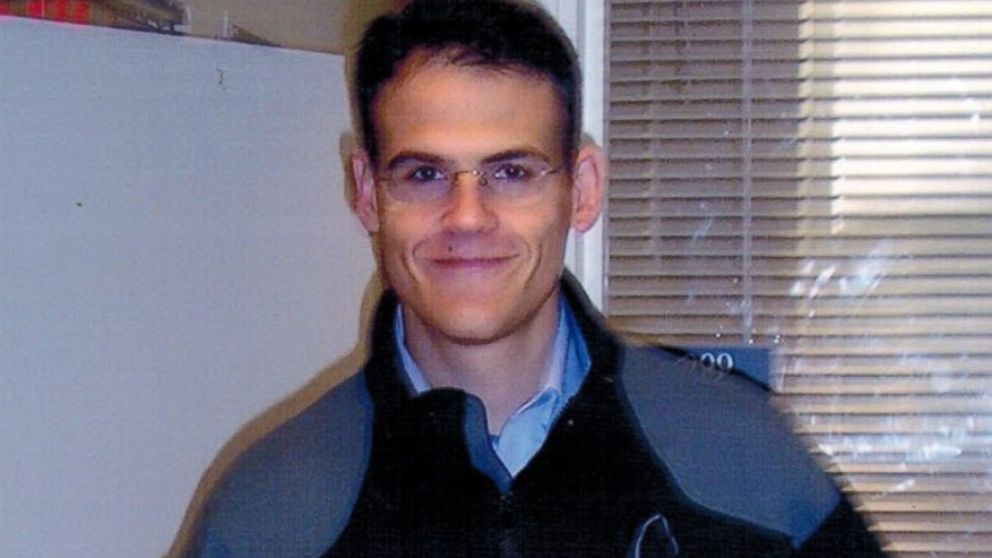Who is Matthew Muller?
Matthew Muller is a figure who has garnered significant media attention due to his infamous acts, but his story begins long before these headlines. Born in the late 1970s, Muller spent his early years in a small community where he was noted for his intelligence and ability to connect with others. His background, steeped in family values and academic emphasis, laid a foundation for the complexities of his later life. Growing up in a supportive household, he was encouraged to pursue education, a theme that would stay with him throughout his journey.
Upon completing high school, Matthew Muller went on to receive his undergraduate degree from a well-respected university. His academic prowess enabled him to attend law school, further diversifying his skill set. During this period, he was involved in various extracurricular activities, which helped to strengthen his leadership abilities and assertiveness. His education provided an expansive view of the legal system, which, over time, would become pivotal to his interactions with law enforcement and authorities.
However, the trajectory of Matthew Muller’s life took a dramatic turn after he graduated. Various personal challenges, including struggles with mental health and identity, began to emerge. These difficulties would eventually lead him down a path that contradicted his earlier promise. Influences from his environment, combined with a burgeoning sense of disillusionment, shaped his character and choices. The convergence of his past experiences and his education paints a nuanced picture, illustrating how a seemingly bright future can unravel under the weight of personal demons.
Matthew Muller’s life, marked by both potential and peril, serves as a compelling case study of how early influences, education, and personal battles can ferociously shape one’s trajectory. Understanding where he came from assists in contextualizing his later actions and the notoriety that followed.
The Legal Troubles of Matthew Muller

Matthew Muller has been a figure of significant legal interest due to various allegations and incidents that have marked his life. His legal troubles first emerged in the public eye in connection with a high-profile kidnapping case in 2015. Muller was charged with the abduction of a woman from her home in California, which sent shockwaves through the community. The incident escalated quickly, involving law enforcement agencies and drawing widespread media coverage. By the time the case came to trial, Muller was facing serious charges, which led to an extensive examination of his past behaviors and legal encounters.
In addition to the kidnapping charge, Matthew Muller has had multiple encounters with law enforcement that have raised concerns about his behavior. Reports indicate a history of criminal activity that includes allegations of theft and assault. These incidents have contributed to a perception of Muller as a person with a disregard for the law. His legal standing deteriorated further as evidence in the kidnapping case revealed his methodical planning and execution of the crime, suggesting a troubling pattern of behavior.
Matthew Muller’s legal difficulties continued to unfold in the courtroom, leading to convictions and sentences that have had lasting impacts on his life. Following the kidnapping trial, he received a substantial prison sentence, which emphasized the seriousness of his actions. The implications of Muller’s legal situation extend beyond the immediate charges, as they have prompted discussions about mental health issues and the criminal justice system’s ability to handle such cases effectively.
Overall, the myriad legal troubles faced by Matthew Muller reflect a complicated interplay of personal choice and systemic factors, illustrating the profound consequences of criminal behavior on an individual’s life and the lives of others.
Matthew Muller’s Public Perception

The public perception of Matthew Muller has been shaped significantly by media portrayals and the sensationalism often accompanying his actions. As a figure involved in high-profile legal controversies, Muller has garnered attention that oscillates between fascination and abhorrence. On one hand, sensational coverage has depicted him as a villain, amplifying the more lurid details of his case, which can skew public opinion toward a predominantly negative perception. Headlines focusing on the most shocking aspects have created an image of a man whose actions eclipse any nuanced understanding of his character.
Conversely, there are critical reflections and discussions that aim to dissect the complexities of Muller’s life and decisions. Some commentators argue that the media’s framing tends to sensationalize rather than provide a balanced perspective. This could lead to a distorted public understanding of Matthew Muller, reducing him to mere headlines rather than considering the full context of his actions. There is a conversation regarding personal circumstances and societal influences that may have contributed to his behavior, which is often overlooked in a media landscape that favors dramatic storytelling over nuanced accounts.
Reactions to Muller are not uniform; they span a spectrum that includes condemnation from those who view his actions as inexcusable, while others may express empathy, suggesting that his life experiences have played a significant role in shaping his choices. Discussions surrounding Matthew Muller’s character frequently touch on themes of morality, justice, and redemption, essential components that highlight the complexity of public perception. This duality in how he is viewed reflects broader societal attitudes toward crime and punishment, illustrating the challenge of reconciling an individual’s actions with the public’s understanding of their context.
Key Events in Matthew Muller’s Life

Matthew Muller is often the subject of extensive media coverage due to a series of significant events that have marked his life. These events provide a lens through which one can understand the complexities of his character and the impact he has had on society. One of the most notable moments in Matt Muller’s life occurred in 2014 when he was involved in a high-profile kidnapping case. This incident involved the alleged abduction of a woman from her home in California, which subsequently led to a nationwide manhunt. The case garnered attention not only for its shocking nature but also for the extensive media coverage it received.
Another pivotal moment for Matthew Muller unfolded during his time at Harvard University, where he studied law. His academic journey was marked by excellence, but it also revealed his struggles with mental health issues, which later became a focal point in discussions about his actions. This dual narrative of academic achievement and personal struggles complicates the perception of him as merely a criminal or a victim of circumstance.
Furthermore, Matt Muller’s sentencing in 2015 to 40 years in prison brought forth debates surrounding justice and mental health in the legal system. This event raised questions about the responsibility of individuals suffering from mental health disorders and their capacity to be held accountable for their actions. Each of these key events has contributed to shaping Matthew Muller’s public persona and continues to influence societal perceptions about crime, punishment, and the importance of mental health awareness.
In essence, the combination of his educational background, significant legal troubles, and the ongoing discourse surrounding his case illustrate a multifaceted individual caught in the complexities of modern society. As such, understanding these key events provides a deeper insight into Matthew Muller and his lasting impact on the communities he has interacted with.
The Impact of Matthew Muller on Society

The life and actions of Matthew Muller have sparked considerable discussion regarding their influence on society. As someone whose legal troubles have drawn widespread media attention, his case serves as a poignant example of the complex intersection between mental health, crime, and public safety. Matthew Muller’s story has prompted conversations around the societal ramifications of individuals who, despite exhibiting promising potentials, lead lives marked by criminal behavior.
Furthermore, the sensational reporting of Matthew Muller has raised pertinent questions about media ethics and the responsibilities of journalists in representing individuals involved in high-profile cases. While the public is often captivated by particular aspects of crime stories, the broader implications, particularly concerning the perceived social narratives, warrant deeper examination. Such representations can affect community perceptions of safety and contribute to stigmatization against those who may share similar backgrounds or experiences.
Beyond the media portrayal, the circumstances surrounding Matthew Muller’s actions call for a reevaluation of legal frameworks and mental health resources within society. The legal troubles he faced have highlighted potential lapses in both preventive measures and the adequacy of responses to individuals identified as having mental health issues. As public discourse continues to evolve, there is an urgent need for a holistic approach that addresses the root causes of criminal behavior, focusing on rehabilitation rather than mere punishment.
Ultimately, the narrative of Matthew Muller can serve as a catalyst for vital dialogues about public policy, legal reform, and societal reactions to crime. His story encourages an exploration of effective measures that prioritize community safety while simultaneously advocating for those in need of support, thus fostering both a secure environment and a more empathetic society.
Matthew Muller’s Influence in Pop Culture

Matthew Muller, a name that has sparked widespread media interest, has unexpectedly emerged as a figure in popular culture. Numerous forms of media, including films, television series, and literature, have depicted aspects of his life, though often through a lens that can both illuminate and obscure his true story. These portrayals tend to reflect societal perceptions of crime and justice, frequently amplifying sensational elements rather than representing nuanced realities.
One notable example includes a fictionalized portrayal in a popular television series, where a character inspired by Matthew Muller embodies themes of both tragedy and villainy. Such representations often tap into the cultural fascination with true crime narratives, drawing viewers into a complex web of intrigue while simultaneously generating a narrative that may not accurately reflect the actual circumstances surrounding his life. This blending of fact and fiction plays into the wider trend of dramatizing real-life events, a practice that often sacrifices authenticity for entertainment value.
Books and documentaries recounting the saga of Matthew Muller also contribute to his presence in pop culture. While some aim for a deeper exploration of his motivations and implications, others sensationalize the details to captivate audiences. This tendency can lead to a distorted image, as the reality of his actions and the context of his environment may be overlooked in favor of betrayal and sensationalism, thereby reducing a complex individual to mere entertainment fodder.
The mix of intrigue and controversy surrounding Matthew Muller cements his place in contemporary culture, illustrating how real-life figures can be abstracted into symbols of broader themes. Ultimately, while Matthew Muller serves as a topic of fascination, the simplistic narratives often fall short of capturing the intricacies of his circumstances and the multidimensional reality of his life.
Psychological Insights into Matthew Muller

The case of Matthew Muller has garnered significant attention due to the bizarre nature of his actions and the unsettling implications they carry. Psychological experts suggest that understanding his behavior requires a deep dive into the complexities of the human mind, particularly regarding mental health disorders and their potential influence on criminal activity. Various studies indicate that individuals like Muller may experience conditions such as personality disorders, which can manifest in impulsive decision-making and distorted perceptions of reality.
Muller’s actions, which included a high-profile kidnapping, can prompt important discussions regarding the role of psychological factors in criminal behavior. Mental health issues often serve as underlying elements that contribute to an individual’s decisions, highlighting the necessity of comprehensive psychological evaluations in legal contexts. For example, experts assert that disorders such as schizophrenia or severe depression might have influenced Muller’s state of mind at the time of his offense, leading to actions that seemed senseless or irrational to the outside world.
The implications of Matthew Muller’s case extend into the realm of legal defenses, where psychological evaluations can play a crucial role. In cases involving severe mental illness, it is not uncommon for defendants to plead not guilty by reason of insanity. This legal avenue requires a rigorous assessment of the individual’s mental capacity at the time of the crime, emphasizing the interaction between psychological conditions and legal accountability.
Furthermore, the societal perception of mental illness complicates the narrative surrounding offenders like Muller. Often, public understanding may be clouded by stigma, leading to simplistic interpretations of complex behaviors. Engaging with expert opinions reveals a more nuanced understanding of Muller’s experiences and actions, fostering empathy and urging a reconsideration of how mental health intersects with criminality.
Lessons from Matthew Muller’s Story

The life and actions of Matthew Muller serve as a potent reminder of the complex interplay between individual choices and societal norms. One of the most significant lessons from Muller’s story is the importance of understanding legal boundaries and the consequences of transgressing them. His involvement in criminal activities highlights not only the personal implications of such actions but also the broader repercussions for both victims and society. This serves as a cautionary tale that underscores the necessity for individuals to recognize the weight of their decisions within a legal framework.
From a societal perspective, Matthew Muller’s case emphasizes the need for communities to foster environments that discourage criminal behavior. Education plays a critical role in this endeavor. By equipping individuals with knowledge about the law, ethics, and the impact of their actions, society can better prepare future generations to make informed decisions. Muller’s story illustrates the potential ramifications when individuals stray from moral and legal guidelines, prompting reflection on how society can cultivate a stronger ethical compass among its members.
Furthermore, Muller’s experiences raise questions regarding mental health awareness and the support systems in place for individuals facing psychological challenges. His story encourages discussions on the importance of identifying signs of distress and providing appropriate resources, as well as fostering an inclusive atmosphere that prioritizes mental health. By recognizing the complex factors that lead individuals like Matthew Muller to deviate from societal norms, we can work towards preventing similar futures for others.
In conclusion, the lessons derived from Matthew Muller’s life are multifaceted, providing valuable insights into legal, societal, and ethical dimensions. It is essential to reflect on these takeaways to guide future behavioral expectations and establish norms that promote accountability and ethical conduct in society.
Where is Matthew Muller Now?
As of October 2023, Matthew Muller remains a figure of public interest due to the serious nature of his past actions and the legal outcomes that followed. Initially incarcerated for his involvement in a high-profile kidnapping case, he was sentenced to serve a substantial prison term. His case has continually made headlines not only for the crime itself but also for the psychological and behavioral assessments that were conducted before, during, and after the trial.
Currently, there are ongoing discussions about Matthew Muller’s possible rehabilitation and future reintegration into society. Reports indicate that he has been participating in various rehabilitation programs while serving his sentence, aiming to address the underlying issues that contributed to his criminal behavior. This aspect of his journey has drawn the attention of both mental health professionals and legal experts, who are monitoring his progress closely.
In terms of legal circumstances, there have been speculations regarding potential parole opportunities. While parole hearings are not imminent, conversations about Muller’s future and the broader implications of his case on mental health assessments in the criminal justice system continue to emerge. Legal analysts have pointed out that the case of Matthew Muller raises important questions about the balance between public safety and the treatment of individuals with documented psychological issues.
Media coverage has also evolved, shifting from sensationalism to a more nuanced exploration of the factors that led to his actions. Several articles and commentaries aim to contextualize his behavior within the framework of mental health, advocating for a more compassionate understanding of not only Muller’s situation but also that of similar individuals. This ongoing discourse reflects society’s efforts to comprehend the complexities surrounding criminal behavior and mental health, making Matthew Muller a central figure in these discussions.







